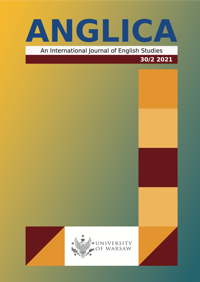The Semantics of Morphological Conversion in Old English
The Semantics of Morphological Conversion in Old English
Author(s): Aleksandra KalagaSubject(s): Language and Literature Studies
Published by: Instytut Anglistyki Uniwersytetu Warszawskiego
Keywords: morphological conversion; word-formation; zero derivation; Old English; morphology
Summary/Abstract: The present article is an empirical, data-oriented study which focuses on the problem of morphological conversion and the way this mechanism was employed in Old English as a way of deriving new lexemes. The article briefly discusses the quantitative characteristics of the attested types, presents patterns of directionality and estimates the degree of availability of conversion in Old English grammar. The main part and purpose of the study, however, concerns the semantic characteristics of conversions sampled in the corpus. Drawing on the framework of semantic categories formulated by Clark and Clark (1979) and Plag (2003), the study aims to demonstrate semantic effects of the so-called zero-affix in Old English by looking into the relation that holds between the motivating base and the resultant derivative. Despite the fact that the availability of conversion was still quite limited in the Old English period, possibly due to numerous inflections that may have inhibited the transparency of this process, the study allows us to see how this process emerged and subsequently developed into one of the most productive word-formational techniques in the English language.
Journal: ANGLICA - An International Journal of English Studies
- Issue Year: 30/2021
- Issue No: 2
- Page Range: 33-52
- Page Count: 19
- Language: English

